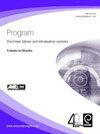The data-literature interlinking service: Towards a common infrastructure for sharing data-article links
Q Social Sciences
Program-Electronic Library and Information Systems
Pub Date : 2017-03-22
DOI:10.1108/PROG-06-2016-0048
引用次数: 21
Abstract
Research data publishing is today widely regarded as crucial for reproducibility, proper assessment of scientific results, and as a way for researchers to get proper credit for sharing their data. However, several challenges need to be solved to fully realize its potential, one of them being the development of a global standard for links between research data and literature. Current linking solutions are mostly based on bilateral, ad hoc agreements between publishers and data centers. These operate in silos so that content cannot be readily combined to deliver a network graph connecting research data and literature in a comprehensive and reliable way. The Research Data Alliance (RDA) Publishing Data Services Working Group (PDS-WG) aims to address this issue of fragmentation by bringing together different stakeholders to agree on a common infrastructure for sharing links between datasets and literature. The paper aims to discuss these issues.,This paper presents the synergic effort of the RDA PDS-WG and the OpenAIRE infrastructure toward enabling a common infrastructure for exchanging data-literature links by realizing and operating the Data-Literature Interlinking (DLI) Service. The DLI Service populates and provides access to a graph of data set-literature links (at the time of writing close to five million, and growing) collected from a variety of major data centers, publishers, and research organizations.,To achieve its objectives, the Service proposes an interoperable exchange data model and format, based on which it collects and publishes links, thereby offering the opportunity to validate such common approach on real-case scenarios, with real providers and consumers. Feedback of these actors will drive continuous refinement of the both data model and exchange format, supporting the further development of the Service to become an essential part of a universal, open, cross-platform, cross-discipline solution for collecting, and sharing data set-literature links.,This realization of the DLI Service is the first technical, cross-community, and collaborative effort in the direction of establishing a common infrastructure for facilitating the exchange of data set-literature links. As a result of its operation and underlying community effort, a new activity, name Scholix, has been initiated involving the technological level stakeholders such as DataCite and CrossRef.数据文献链接服务:建立共享数据文章链接的共同基础设施
如今,研究数据发布被广泛认为是再现性、科学结果正确评估的关键,也是研究人员分享数据获得适当赞誉的一种方式。然而,要充分发挥其潜力,还需要解决几个挑战,其中之一是制定研究数据和文献之间联系的全球标准。目前的链接解决方案主要基于出版商和数据中心之间的双边临时协议。这些都是孤立的,因此内容无法很容易地组合在一起,以提供一个全面可靠的方式连接研究数据和文献的网络图。研究数据联盟(RDA)发布数据服务工作组(PDS-WG)旨在通过将不同的利益相关者聚集在一起,就数据集和文献之间共享链接的共同基础设施达成一致,来解决这一碎片化问题。本文旨在探讨这些问题。,本文介绍了RDA PDS-WG和OpenAIRE基础设施的协同工作,通过实现和操作数据文献互联(DLI)服务,实现了一个用于交换数据文献链接的通用基础设施。DLI服务填充并提供对从各种主要数据中心、出版商和研究组织收集的数据集文献链接的访问(在撰写本文时,链接数量接近500万,而且还在增长)。,为了实现其目标,该处提出了一种可互操作的交换数据模型和格式,在此基础上收集和发布链接,从而提供了在真实情况下与真实提供者和消费者验证这种共同方法的机会。这些参与者的反馈将推动数据模型和交换格式的不断完善,支持服务的进一步发展,使其成为收集和共享数据集文献链接的通用、开放、跨平台、跨学科解决方案的重要组成部分。,DLI服务的实现是朝着建立公共基础设施以促进数据集文献链接交换的方向进行的第一次技术、跨社区和协作努力。由于其运营和潜在的社区努力,一项名为Scholix的新活动已经启动,涉及DataCite和CrossRef等技术层面的利益相关者。
本文章由计算机程序翻译,如有差异,请以英文原文为准。
求助全文
约1分钟内获得全文
求助全文
来源期刊

Program-Electronic Library and Information Systems
工程技术-计算机:信息系统
CiteScore
1.30
自引率
0.00%
发文量
0
审稿时长
>12 weeks
期刊介绍:
■Automation of library and information services ■Storage and retrieval of all forms of electronic information ■Delivery of information to end users ■Database design and management ■Techniques for storing and distributing information ■Networking and communications technology ■The Internet ■User interface design ■Procurement of systems ■User training and support ■System evaluation
 求助内容:
求助内容: 应助结果提醒方式:
应助结果提醒方式:


